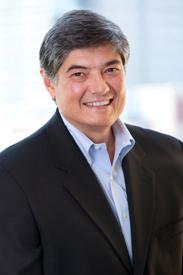Interview – Christopher Oechsli
Resource type: News
Alliance magazine | [ View Original Source (opens in new window) ]
The Atlantic Philanthropies is coming to the end of its life as a grantmaking foundation. It is due to complete its grantmaking by 2016 and close its doors by 2020 – the largest foundation ever to spend out. Caroline Hartnell talked to Atlantic president and CEO Christopher Oechsli about why its founder, Chuck Feeney, adopted the limited-life approach and why he doesn’t favour the term ‘spend out’; where Atlantic’s priorities will lie for the remainder of its existence; and what its influence has been.

In your recent annual letter, ‘Journey to Lasting Impact’, you say that funding in your remaining years will focus on areas where you see the best opportunities to make the greatest impact. What are these areas?
We have four core programmes – Ageing, Children & Youth, Reconciliation & Human Rights and Population Health – and the Founding Chairman’s programme. Our initiatives going forward draw from our experience with these and from the countries where we’ve been engaged for an extended period. As we conclude our work, we also want to maintain some flexibility to seize opportunities, consistent with our Founding Chairman’s approach. The most recent example of this is a major investment in Cornell University’s Applied Sciences NYC Initiative in partnership with New York City.
Throughout our core programmes, we have zeroed in on several themes. In the Republic of Ireland, for example, we are working with government to try to develop and embed evidence-based practices with a community care emphasis in the areas of dementia and disability. In respect of children, we support prevention and early intervention practices in both the Republic of Ireland and Northern Ireland. And in the US, we are working with schools, communities and service providers to improve educational, social and economic outcomes for students and their families, especially those in disadvantaged communities. This includes such things as promoting the efficiency of school-based health clinics and reforming school discipline practices, which particularly affect children of colour in disproportionate ways. In Vietnam and South Africa, we are concluding our grantmaking but not our work. We are trying to influence the system to emphasize primary healthcare as a cost-effective and outcome-effective way of allocating limited health resources (picture shows a commune health centre in Vietnam).
Is the course set or, as you get closer to the end of 2016, are there going to be changes in those programmes?
>Continue reading the full article on Alliance magazine’s website